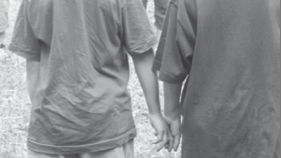A glance at the children's section of a bookstore is enough to see the importance of the theme of friendship. Books with tales of brave children's gangs share the shelf with friendship books to fill in yourself.
Children's Friendships
Children should be able to rejoice in experiences and laugh together. Observe the children and react when they are overwhelmed and reach their limits.
Although friendships change greatly just a few years later - in teen and adolescent years - the memories of strong childhood friendships last a lifetime.
Friendships are not simply good because it is nice and social to have friends, but because they are of great importance for a child's development.
Development of the school child
Children of school age move strongly, accomplish a lot and are motivated. In early school-age children, they are usually still self-centered, but this changes as they get older. In late school-age children are more interested in a group and also become team players.
At this very age, they learn a great deal - be it knowledge, social or skills (head, heart, hand). They learn by imitation - older children also by reflecting on their own experiences and mistakes.
Same-age friends
In this time filled with learning experiences, friends and peers also play a big role. Belonging somewhere, having fun, sharing interests and experiences boosts self-confidence, gives courage and security. Friends are a familiar environment, even outside the own family.
Groups
In a large group of children there are always small groups. Without such subgroups, your group would be made up of loners. Your task as a leader is not to counteract the little groups, but to help outsiders to find a place in the group (see also "Outsiders" and "Promote cohesion").
Fighting is part of the daily routine among children. This is also an important aspect of friendship and the development of the child. Especially when the child learns to argue fairly, forgive the other person and make peace.
Girls seek out friends with whom they can share worries and joys. Boys, on the other hand, strive to belong to a group. And kids with similar interests are quicker to find a group. This is because opposites are only attracted to each other as they get older - as is the opposite sex. At school age, boys are "stupid" for the girls namely.
Outcasts
Where there are groups, there are also children who do not belong to such a community. The reasons for this can vary and sometimes be incomprehensible to adults.
Whoever doesn't behave properly socially, wears the wrong clothes, has an unusual home or otherwise steps out of line is shunned. This is a tough experience for kids. You, as a leader, can give such kids a leg up by helping them make friends of the same age.
Among children, there are often groups of three that are prone to conflict. Because as soon as one member turns to another, the third feels left out. This quickly creates a competitive situation among the children.
Fostering cohesion
In a recent survey conducted by Unicef, over 80% of Swiss children and young people said that they found their peers nice and helpful. With a group of kids, it's important to foster such good relationships with each other as well. Especially even if you don't realize in your group that 80% of your kids think each other are great ...
The following are some ideas to encourage cohesion in a group. However, not every group responds the same way to the tasks given to them. Try it out and delve into what specifically works well in your group.
Taking Responsibility for Each Other
When responsibility is given to a child, it means that they are trusted to do something. It suddenly shows a different side - especially when it is taken out of familiar relationships and put into new ones.
As a leader, pay careful attention to whom and how you hand over responsibility. Because despite all the handing off, you are still responsible for your group!
Situations where you can hand over responsibility to children:
- determine the godparents when a new member joins a group
- forming "Pärli" on the way
- determine caregivers when being with disabled children
- Care for parents at a parents' evening
- Take over camp blocks and help plan for the other children
- Involve children in a sick care program
Common Project
Working on a common project welds together. Because every child - even if he or she was not present at all project occasions - knows that he or she has made a small contribution and also belongs to the project. A project has different phases. It is worth planning these in advance: the starting signal, the planning, the work and not forgetting a final (celebration?)!
Ideas for a project:
- repaint/furnish/design the Sunday school room
- build a tree house
- rehearse and perform: Musical, circus, Christmas play
- renaturalize a landscape
- work towards a competition (for example, build a creative raft for the raft race)
Games
Games are not real life, but always reflect life situations. You can pick games specifically to calm a group, motivate them, weld them together, or rehearse handling skills.
A number of books have already been written about games that promote cohesion in a group. That's why there are no explanations about it here - at shop.besj.ch you can find recommended literature on the topic of games.
Experiences
Like common projects, common experiences are incisive. As a leader, you can plan for this specifically, for example in camps and excursions. You don't even have to make a special effort to do this, because even a walk followed by a treasure hunt is an experience for children.
Make sure that the children are happy and can laugh together during such experiences. Observe the children and react if they are overtaxed and reach their limits.
Such experiences can also be staged well with experiential education activities. See in forum 2/07 "Experiential education - overcoming limits and fear!"
Conflict management
As mentioned earlier, conflict is part of childhood. The key is not that you, as the leader, stamp out such disputes, but that you guide the children to find a good way out. Children also emerge stronger from a resolved conflict.
Biblically lived relationships
The Bible as the foundation of our work and life is also the best guide here. Therefore, at school age, children should also hear devotions specifically on the topic of "relationships". In addition, you as a leader - are you as a team - are a role model for the children: they very much like to observe other lives and learn from them!
Because if they learn to live relationships with each other according to the Bible, then that is better than any psychological development!
Source references
Unicef: "An overview of child well-being in rich countries", Italy, 2007
Fritz+Fränzi 4/2007, "Children need friends"
- Content and image: Forum Child issue 4/07, pages 16 + 17. Article about children's friendships and how to foster them. © Copyright www.forum-kind.ch
- Author: Salome Brander
Content may be automatically translated. Help improve the quality of the translation with your editing!



